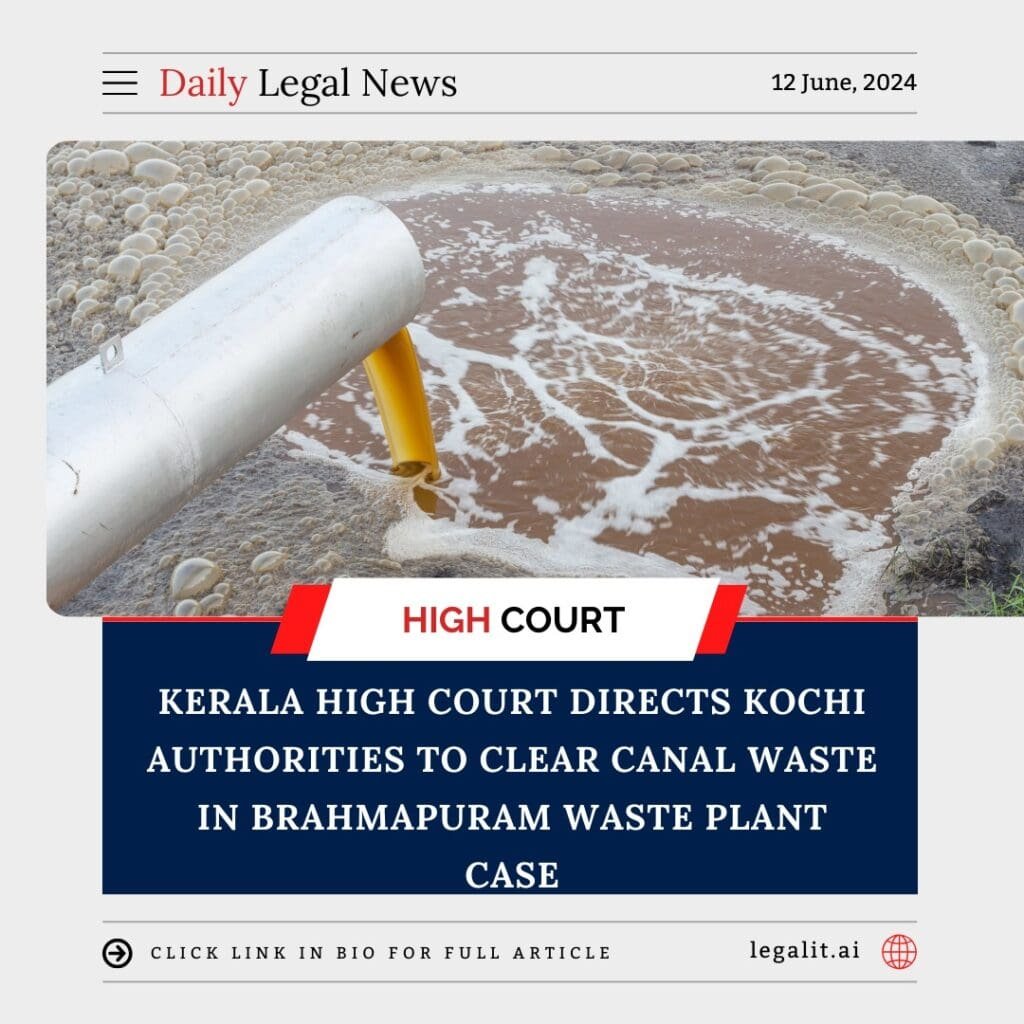
The Kerala High Court has issued a directive to the Kochi Corporation to address the waste management issues, particularly the accumulation of waste in the city’s canals, in the ongoing Brahmapuram waste plant case. This decision underscores the necessity of maintaining proper waste disposal practices to prevent environmental and health hazards in Kochi.
Background of the Case
The Brahmapuram waste treatment plant has been at the center of controversy due to its inadequate waste management practices, which have led to environmental degradation and health concerns for the residents of Kochi. The Kerala High Court took suo motu cognizance of the situation, particularly following a significant fire at the plant that exacerbated the waste management crisis【122†source】【123†source】.
Court’s Directives
- Clearing Canal Waste: The High Court has specifically directed the Kochi Corporation to clear waste from the city’s canals, which has been a persistent problem. The court emphasized that the waste removed from drains should not be left on the sides of the drains but should be properly disposed of to prevent re-accumulation【122†source】【124†source】.
- Monitoring and Reporting: The court ordered the establishment of a monitoring committee to oversee the waste management practices at the Brahmapuram plant. This committee includes officials from the Ernakulam district administration, the Pollution Control Board, and the Kerala State Legal Services Authority. The committee is tasked with ensuring that the waste management protocols are followed diligently and that any issues are promptly addressed【124†source】.
- Public Awareness and Education: The court highlighted the importance of educating the public, especially school students, about the importance of proper waste disposal and the dangers of dumping waste in public spaces. This educational initiative is part of a broader effort to instill good waste management practices from a young age【122†source】.
Progress and Challenges
During the court’s review, it was noted that significant progress had been made in the bio-mining efforts at the Brahmapuram site. Approximately 4 lakh tonnes of legacy waste have been stabilized, and about 2.72 lakh tonnes have been processed. However, the onset of the monsoon has slowed down these efforts. The court acknowledged the progress but stressed the need for continuous and expanded efforts to manage waste sustainably across the state【122†source】【123†source】.
Conclusion
The Kerala High Court’s intervention in the Brahmapuram waste plant case highlights the critical need for effective waste management practices in Kochi. By directing the Kochi Corporation to clear canal waste and setting up a monitoring committee, the court aims to ensure that the city adopts sustainable waste disposal methods. These measures are crucial for protecting the environment and the health of Kochi’s residents.